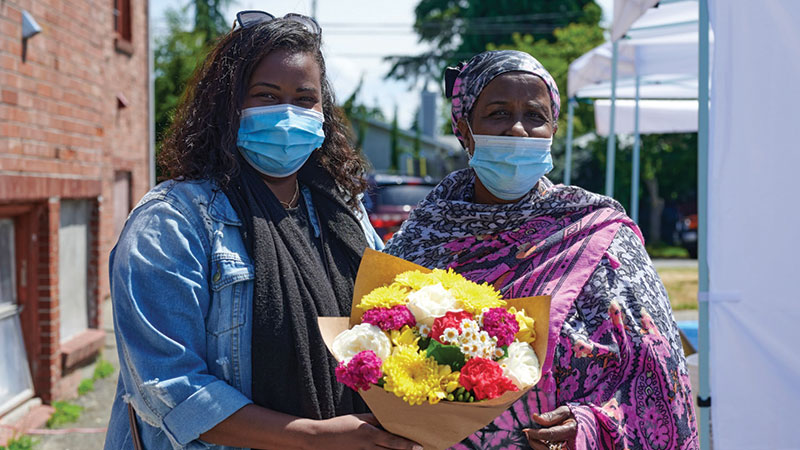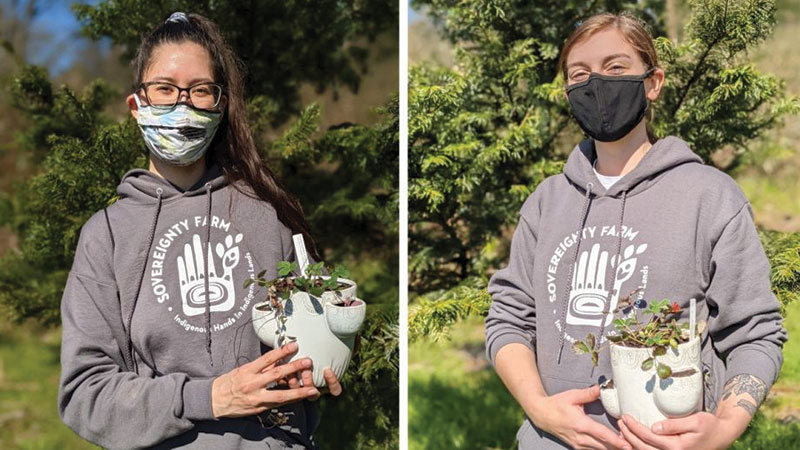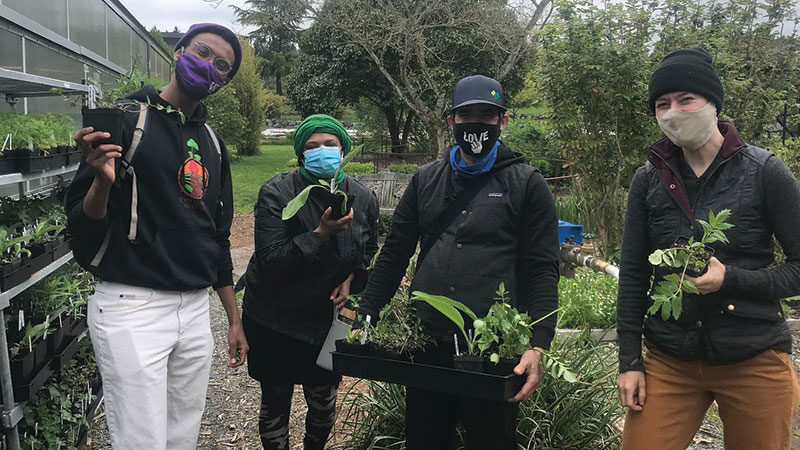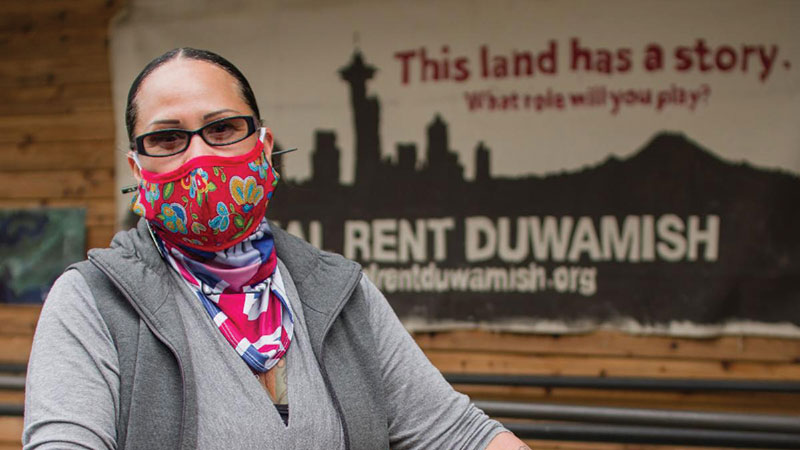PCC grants give back to community
This article was originally published in January 2022
Seven local nonprofits will share $35,000 in PCC Community Grants to help cultivate local organic food systems and support diverse communities.
Each organization received $5,000 toward projects that range from building accessible garden beds to delivering indigenous foods to tribal elders.
“PCC’s grant programs are a critical ingredient in achieving our vision through giving back to our community,” said Laura Ray, PCC’s director of community and giving. “With our programs including Community Grants, we have helped fund farms and community gardens in urban and rural BIPOC communities, assisted low-income entrepreneurs with building their businesses and supported scientific research in underfunded fields. We are grateful to continue this work that strengthens a collaborative culture capable of transformational change.”
PCC introduced the co-op’s Community Grants in 2014 as a smaller quarterly program and it shifted to an annual process with the onset of the COVID-19 pandemic. Last year the co-op simplified the grant submission process, removing barriers and increasing access to better support community partners to help them achieve their missions.
“United Indians of All Tribes Foundation is grateful to partner with PCC Community Markets on another effort to fight food insecurity, which is growing in King County,” said Michael Tulee, executive director of the United Indians of All Tribes Foundation, a grant recipient. “In recognition of our Elders’ contributions, and the real risks of isolation, our program maintains Elders’ connections to community and well-being. Thanks to generous organizations like PCC, we have delivered meals, uninterrupted, throughout this pandemic. Those deliveries also serve as checkpoints for problem-solving and support.”
In its ongoing work to support its local communities, PCC also recently awarded $30,000 in Downtown Seattle Food Access Grants to six organizations focused on addressing food insecurity through the purchase of organic goods. The co-op is currently in the process of considering applications for its Organic Producer Grants that support local producers and farms.
The Community Grants will support these organizations and projects:
- African Community Housing and Development (ACHD): The grant supports the organization’s Delridge Farmers Market, a project to ensure healthy, local, culturally relevant food is available and affordable for the immigrant and refugee community of Delridge (a U.S. Department of Agriculture-designated food desert). It specifically supports the Market’s produce buyback program, which purchases all leftover produce at the end of the market day at full price from farmers, giving vendors a predictable, guaranteed income from the market and encouraging them to participate. ACHD then distributes the food for free to members of the African Diaspora immigrant and refugee community who were unable to attend the market due to transportation or mobility barriers.
- Black Farmers Collective: The grant supports food sovereignty at Yes Farm in Seattle, one of the Black Farmers Collective’s two sites (the other is in Woodinville). The 1.5-acre farm provides food for BIPOC markets and mutual aid across King County, with the goal of building a community-based food system. The project would support different areas, including a farm manager’s time and printing educational materials and signs, as well as printing a farm guide in multiple languages. The free, multicultural and multilingual programming is aimed at people who may not have had other exposures to farming or food sovereignty. Through its work, the organization is not just feeding the community, they said in a grant application, but “we are sharing the knowledge for our community to feed themselves.”
- Chief Seattle Club: The grant will support Sovereignty Farm, a farm-to-table project growing native plants for food and medicinal purposes for the American Indian and Alaska Native people served by the organization (click here for more information). The farm uses an apprenticeship model that includes elders and people with disabilities, and the grant money will help them assemble elevated garden beds that are more accessible, buy local plants, and participate in an American Sign Language (ASL) learning workshop.
- The Common Acre: The grant will support a pilot program at the Alleycat Acres Urban Farm Network, a program operating on four farm sites in Seattle, spanning 40,000+ sq. feet of public land. It distributes 10,000+ pounds of organic produce and offers weekly activities throughout the growing season each year. In 2022, with its partners, it will increase community food system infrastructure by establishing a network of “Food Hubs,” including cold storage, pantries for dry goods and market stalls.
- Gathering Roots Wellness: This organization is working on irrigating an acre of land for no-till farming, the largest land purchase (by acreage) by African-Americans in Washington state. The grant will help set up a ground irrigation system, and to develop a management system. Organic food and herbs grown on the property will feed people at the organization’s retreat center and also provide Community Supported Agriculture boxes for schools.
- Plant Based Food Share: This organization provides food boxes at no cost for people in need living in low-income, underserved communities. Boxes include organic produce, pantry essentials, baked goods and culturally relevant, prepared meals. The grant will help buy produce and plant-based food from local BIPOC distributors, chefs and farmers such as Farmer Frog and Sky Island Farms, helping put money back into the community of BIPOC producers as well as “to inspire community, and to encourage healthy lifestyles for those that are underserved and have historically been unable to grow their own food or access healthy foods,” according to the agency website.
- United Indians of All Tribes: The organization’s grant funds will purchase food from Indigenous providers as part of a weekly food delivery service for Elders. The organization supports Indigenous foragers, farmers and fishers in the Salish Sea region. This investment is meant to provide both direct service to community members and support the entrepreneurial efforts of individuals focused on food sovereignty.




